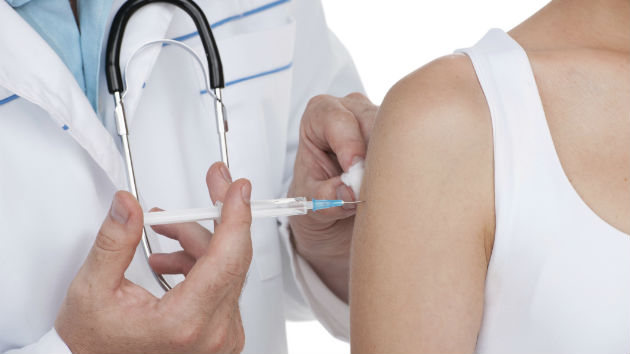What You Need to Know About the Measles Vaccine
Published at
 iStock/Thinkstock(NEW YORK) — Measles, a disease eliminated from the United States through vaccination more than a decade ago, is making a comeback.
iStock/Thinkstock(NEW YORK) — Measles, a disease eliminated from the United States through vaccination more than a decade ago, is making a comeback.
At least 21 people in Orange County, Calif., and 25 people in New York City have contracted the virus, which causes flu-like symptoms, a miserable rash and, in rare cases, death. In just three months, more than 100 measles cases have been reported nationwide, according to the U.S. Centers for Disease Control and Prevention. That is nearly double the number of cases seen in a typical year.
Most– but not all– U.S. children receive the MMR vaccine, an immunization against measles, mumps and rubella. A single dose, usually administered in 1-year-old kids, is 95% effective in preventing measles. A second dose virtually eliminates the risk completely.
But if you’re not vaccinated, there’s a 90% chance you’ll get measles if you’re exposed. The contagious virus spreads through respiratory droplets — the mist exhaled during coughs and sneezes. And it can live on surfaces for up to two hours, according to the CDC.
So who’s not getting vaccinated?
All 50 states allow medical vaccine exemptions for kids with severe allergies or immune disorders that can’t tolerate the vaccine. Forty-eight states allow religious exemptions, and 20 states allow personal belief exemptions.
In states that allow all three types of exemptions, personal belief exemptions tend to be the most common, according to the College of Physicians of Philadelphia. Such exemptions have more than doubled between 1991 and 2004. Why the rise? Most experts agree that a now-debunked 1998 study linking the MMR vaccine to autism has something to do with it. The study was retracted in 2010 after countless other found no evidence of a link, but autism fears bolstered by celebrities — not science — linger.
The MMR vaccine’s most common side effects are fever, a mild rash and swelling of glands in the cheeks and neck, making it “much safer” than getting measles, according to the CDC.
Some parents opt to delay the vaccination rather than skip it altogether, but that still raises the risk of preventable infections, according to the CDC.
How do you know if you’ve been vaccinated? Every shot you get is recorded, so ask your doctor, your parents or your high school. Some states even have vaccine registries. If you’re still not sure, your doctor may be able to test your blood for antibodies. Worst case: you can get the vaccine again just to be safe.
Copyright 2014 ABC News Radio


